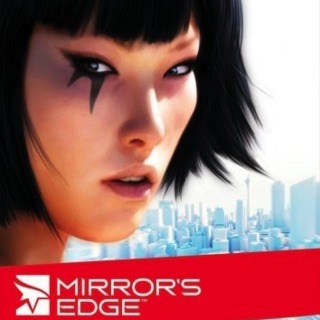Mirror's Edge: You can think of it being like Portal.
However, it's worth a play-through, even if a rental to just check it out.
Mirror's Edge is one of those games that only seems to come around every once in a while. It's the kind of game that offers a lot from very little and gives you an excellent taste before overstaying its welcome. Some of the most enjoyable games in my memory have been similar to Mirror's Edge. Recently, the best title that pops to mind is Portal. Portal focus on very specific things which they wanted to pull off well. In Portal, they wanted the player to think differently by using two portals to leap between. The player only had the ability to create a blue portal for the first half of the game, then the orange portal with the device upgrade for the later half. It was all that was offered to us, but it worked well. Portal's level design was great in that it was challenging the first play through, if not frustrating at some parts. The game's artistic design never changed so that we would learn-by-doing, so in the later levels we understood what to do to get to the exit without having our hand held through the course. Friends would get motion sick watching you fling yourself with fantastic acrobatics through the air, or falling endlessly through a loop in the floor, all through a permanently first-person perspective. The game was over in practically one sitting. But it was good, even though it seemingly offered so little. Valve made us want to go back to previous levels and replay them as flawlessly as we could, and it felt awesome to actually manage to play through a course without a mistake in record time.
Another game is ICO. Remember ICO? In ICO, he could pretty much only swing a stick to fight. Yet what kept us going through the whole game was the will to see Yorda to safety. In many situations, the enemies weren't worth fighting because if you got Yorda to the exit of the room, she could kill all of the enemies in the room for you. The developers of ICO wanted us to focus more on getting Yorda to safety than beating up all the bad guys. If they had given us more ways to fight, it might have made Ico seem to powerful of a character, and place an imbalanced emphasis on fighting over escaping with Yorda. The challenging [and sometimes frustrating] platforming elements later on in the game drive home the idea that Ico eventually cares more about Yorda's safety than his own health.
Now think about Mirror's Edge.
We're given the ability to run and jump, and do it well [and intuitively.] We're given level design that holds our hand to start with, showing us what to look for so we can be trained on how to find our own routes in the later levels. Mirror's Edge wants the player to think about the environments that surround them differently, using frankly mundane every-day things that you'd find in any city. [For instance, we learn that an air-duct at body-height is one we should probably slide under. A pipe jutting from a wall is something we can probably climb up. A fence blocking your path is one you should probably vault over. Two boxes or air-conditioning units stacked next to each other are probably something you should spring-board off of.] You play as a character whose primary strength is agility and speed. She can fight, but only as a last resort to something blocking the way. The game offers no crazy-awesome selection of guns or gritty gun battles -- as it's meant to be kept mildly in reality. When your best offense is also your defense, (that is to run, jump, and go places your enemies cant,) what need do you have for weapons? [DICE diminished the gunplay on purpose for this reason. After all, as they also created the Battlefield games, they would've had no problem turning Mirror's Edge into a "shooter."] Putting over emphasis on killing your enemies would have offset the kind of character Faith is. You're not playing someone who's out to kill everyone in her path -- just someone who wants to get her sister back and deal with who was responsible. Just like in Portal, you'll have your fair share of mishaps and accidents on your first play through, but it's all part of the fun if you ask me. Platforming games of the old days were practically reliant on the player building skill to eventually blow through a level without stopping. And it's amazingly gratifying once you become skilled enough to do so. [Remember how you always wanted to flawlessly blow through courses in Sonic without stopping? It's kind of like that.] While the game is finished in two to three sittings, it's my opinion that it tends to make the game stronger. Just like Portal, you get to do a lot with very little, and feel as though you were left with something good before it over stayed its welcome.
[This of course leads to me admitting that unlike Portal, it would have been nice if Mirror's Edge cost just as much.]
Note about the graphics:
It's about time a game has started to use radiosity light scattering in it's graphics engine. Brighter objects, such as a bright yellow wall, illuminating dimmer objects with reflected light is something that more games need to pick up on -- if only on a textural basis. There's something so awesome about seeing bright colors spill from surface to surface from the games unbelievably realistic sunlight. The next step, hopefully by the next generation, is to have a fully real-time radiosity light engine that can calculate photon transport on the fly. Now that would be something.

